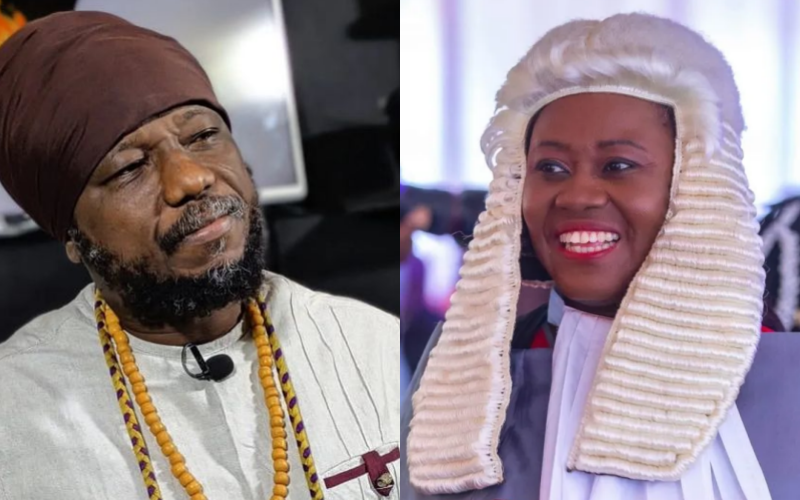Blakk Rasta’s blistering critique of Chief Justice Gertrude Torkornoo centers on allegations of partisanship, dishonesty, and a betrayal of the public trust. He paints a picture of a woman who initially inspired hope and admiration, particularly as a female figure ascending to a position of significant power in a society often criticized for gender inequality. However, he argues that this initial promise has quickly dissolved, replaced by actions and decisions that reveal a starkly different character, one tainted by political bias and a lack of integrity. His disappointment is palpable, fueled by a sense of broken expectations and a perceived abandonment of the principles she seemingly embodied upon her appointment.
The reggae artist’s condemnation is particularly sharp given his initial support for Torkornoo’s appointment. He emphasizes his enthusiasm for seeing women rise to positions of leadership, highlighting the importance of female representation in a society where women are often marginalized. This initial support amplifies the gravity of his current criticism, suggesting a profound disillusionment with the Chief Justice’s conduct. He frames his criticism not as an attack on women in power, but as a condemnation of corruption and dishonesty, regardless of gender. He explicitly states his admiration for women in high positions, but qualifies this admiration by emphasizing that it extends only to those who are not corrupt or dishonest.
Blakk Rasta’s attack becomes more specific with the allegation of hidden wealth, claiming she has “several millions of hard currencies under [her] bed.” This accusation, while unsubstantiated in the provided text, adds another layer to his critique, portraying the Chief Justice not just as partisan, but also as potentially corrupt. This accusation underscores the depth of his distrust and the severity of the allegations he levels against her. He connects his accusations to the current political climate, drawing parallels between the Chief Justice and former President Nana Addo, suggesting that Torkornoo deserves the same level of scrutiny and potential repercussions as her predecessor.
The artist’s criticism also touches upon Torkornoo’s public display of faith upon her appointment. He portrays this act as a calculated performance, contrasting her initial pious image with her subsequent actions, which he considers to be contradictory to the values she publicly espoused. He uses the metaphor of a chameleon to describe her perceived shift in behavior, suggesting a deliberate deception and a calculated effort to mask her true nature. This comparison further reinforces his portrayal of the Chief Justice as someone who lacks authenticity and integrity.
Blakk Rasta’s disappointment stems not only from his perception of Torkornoo’s actions but also from the context of the petition seeking her removal from office. While the details of the petition are not explicitly outlined in the provided text, it serves as a backdrop for his critique, adding weight and relevance to his accusations. The existence of the petition suggests that his concerns are shared by others, potentially indicating a wider dissatisfaction with the Chief Justice’s performance. His public condemnation can be interpreted as an expression of this broader sentiment, echoing the calls for accountability and transparency in judicial leadership.
In summary, Blakk Rasta’s scathing attack on Chief Justice Gertrude Torkornoo represents a dramatic shift from initial support to profound disappointment. He accuses her of partisanship, dishonesty, and hypocrisy, painting a picture of a leader who has betrayed the public trust and fallen short of the expectations placed upon her. His criticism is amplified by his initial enthusiasm for her appointment, highlighting the perceived depth of her failings. The allegations of hidden wealth and the public display of faith, coupled with the backdrop of a removal petition, contribute to a portrait of a Chief Justice embroiled in controversy and facing a significant crisis of credibility. Blakk Rasta’s outspoken commentary serves as a powerful expression of discontent, adding fuel to the debate surrounding Torkornoo’s leadership and the integrity of Ghana’s judicial system.














